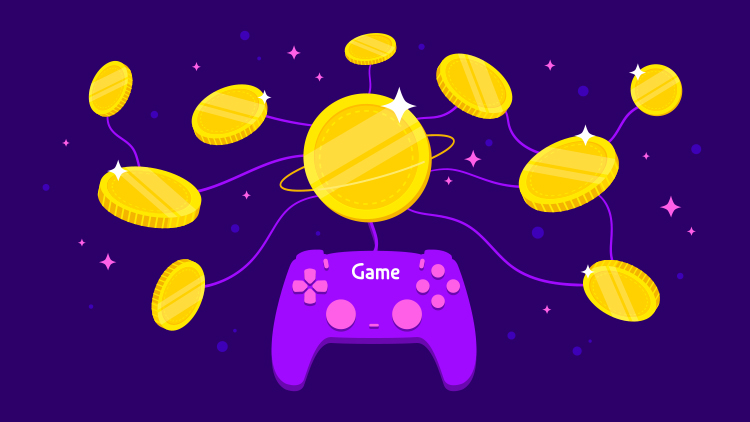Introduction
Freemium games have become a popular form of entertainment for millions of players around the world. These games offer a basic experience for free, with optional in-game purchases. While this model allows games to be accessible to a wide audience, it also raises questions about how developers balance the need to make money with providing an enjoyable experience for players. In this article, we will explore the world of freemium games, looking at both the benefits and potential challenges they present.
Understanding Freemium Games
Freemium games are free to play, meaning anyone can download and start playing without paying any money. However, within the game, there are opportunities for players to make optional purchases. These can include items, upgrades, or special features that enhance the gaming experience.
Benefits of Freemium Games
Accessibility for All
One of the most significant advantages of freemium games is that they are accessible to a wide range of players, regardless of their financial situation. This means more people can enjoy the game and be part of the gaming community.
Try Before You Buy
With freemium games, players can try out the basic version of the game for free. This allows them to get a feel for the game and decide if they want to invest in additional features or items.
Continuous Updates and Support
The revenue generated from in-game purchases allows developers to invest in ongoing updates and improvements. This means that the game can evolve and provide fresh content for players over time.
Challenges of Freemium Games
Balancing Monetization and Player Experience
Finding the right balance between making money and providing an enjoyable experience for players is a delicate task. Developers need to ensure that optional purchases do not disrupt the core enjoyment of the game.
Avoiding Pay-to-Win Mechanics
Freemium games need to avoid creating a "pay-to-win" environment, where players who spend money have a significant advantage over those who don't. This can lead to frustration and imbalance within the player community.
Ethical Monetization Practices
Some freemium games have faced criticism for using manipulative tactics to encourage in-game purchases, especially among younger players. Developers need to employ ethical monetization strategies that are transparent and fair.
Strategies for Balancing Monetization and Player Experience
Clear and Transparent Pricing
Developers should provide clear information about the costs of in-game purchases. This includes displaying prices in the local currency and ensuring that players understand what they are buying.
Offering Value in Purchases
In-game purchases should provide genuine value to the player. Items or features should enhance the gaming experience rather than being essential for basic gameplay.
Providing Alternatives for Non-Paying Players
Players who choose not to make in-game purchases should still be able to enjoy the game and compete on a level playing field. This helps maintain a fair and inclusive gaming environment.
The Dual Nature of Freemium Games
Freemium games grant players free entry into the gaming world, but within this space, opportunities for optional purchases abound. These can range from cosmetic items to gameplay enhancements, allowing players to customize and enhance their experience.
Advantages of Freemium Games
Accessibility and Inclusivity for All
Freemium games break down financial barriers, welcoming a diverse player base. This inclusivity fosters a vibrant and varied gaming community.
Empowering Player Choice
By offering a taste of the game for free, players have the agency to decide if they wish to invest further. This "try before you buy" approach fosters informed decision-making.
Sustainable Development and Ongoing Improvements
Revenue generated from in-game purchases supports developers in maintaining and enhancing the game. This translates to regular updates, fresh content, and a dynamic gaming experience.
Navigating Challenges in Freemium Models
The Delicate Balance of Monetization and Experience
Striking the right equilibrium between profitability and player satisfaction is a pivotal challenge. Developers must ensure that optional purchases complement, rather than overshadow, the core joy of the game.
Avoiding the Pitfall of "Pay-to-Win" Mechanics
Maintaining a level playing field is paramount. Freemium games should steer clear of creating an environment where financial investment significantly tilts the odds in a player's favor, potentially alienating non-paying players.
Upholding Ethical Monetization Practices
Some freemium games have been critiqued for employing manipulative strategies, especially with younger audiences. Ethical monetization involves transparent and fair practices that prioritize player experience.
Strategies for Achieving Balance
Clarity in Pricing and Transactions
Transparent pricing is a cornerstone of ethical monetization. Players should have a clear understanding of costs, and prices should be displayed in the local currency to avoid confusion.
Providing Genuine Value in Purchases
In-game purchases should enrich the gaming experience, offering real value to players. These additions should be enhancements, not prerequisites for basic gameplay.
Ensuring Accessibility for Non-Paying Players
A thriving gaming community comprises paying and non-paying players. It is crucial to provide avenues for both groups to engage meaningfully, upholding fairness and inclusivity.
Conclusion
Freemium games have revolutionized the gaming industry, allowing a broader audience to enjoy interactive entertainment. Balancing monetization with player experience is a challenge that developers continually strive to address. By employing transparent pricing, offering value in purchases, and providing alternatives for non-paying players, the gaming community can work together to create an environment where everyone can enjoy freemium games to the fullest. With thoughtful and considerate approaches, we can ensure that freemium games remain a positive and enjoyable part of the gaming landscape.
